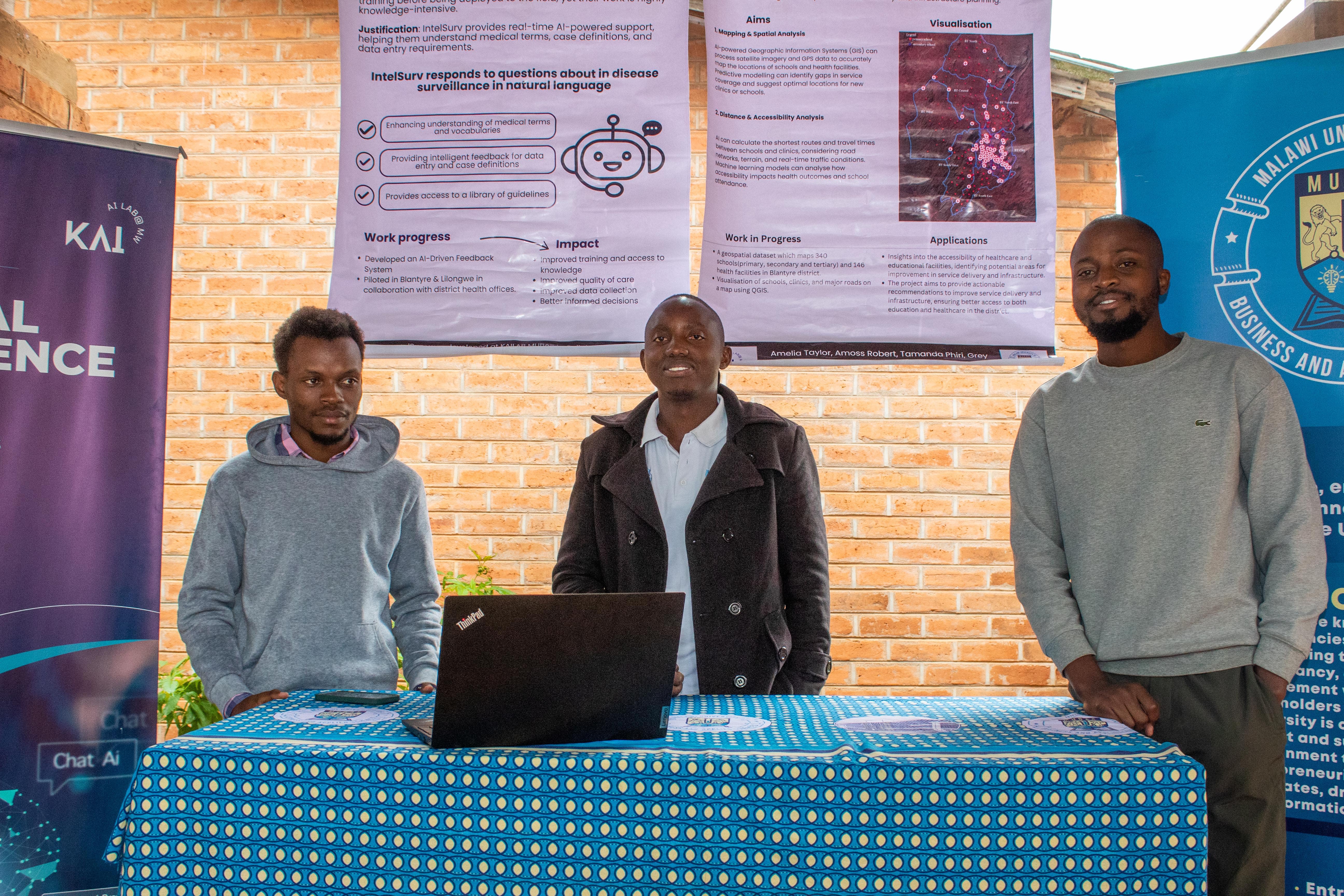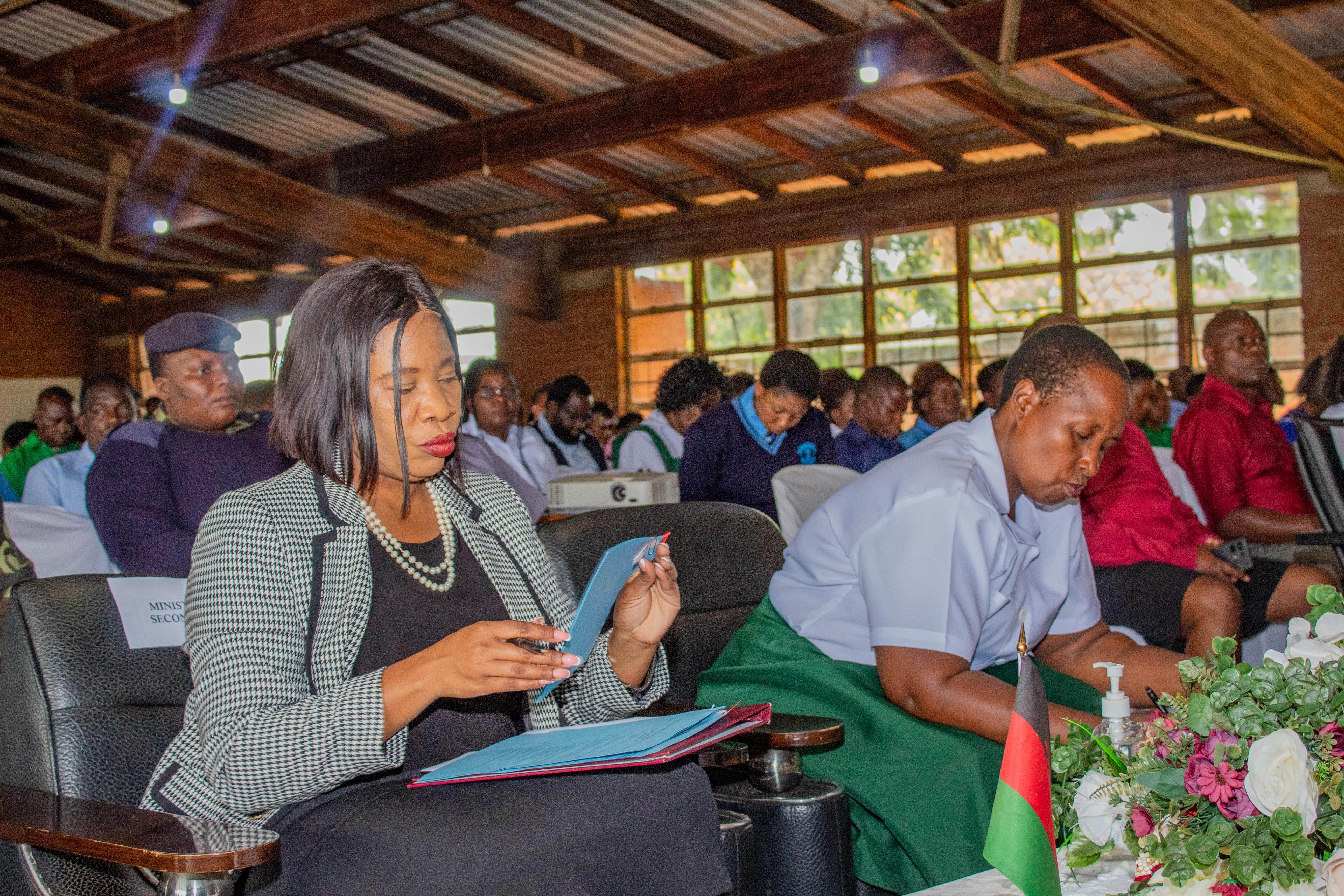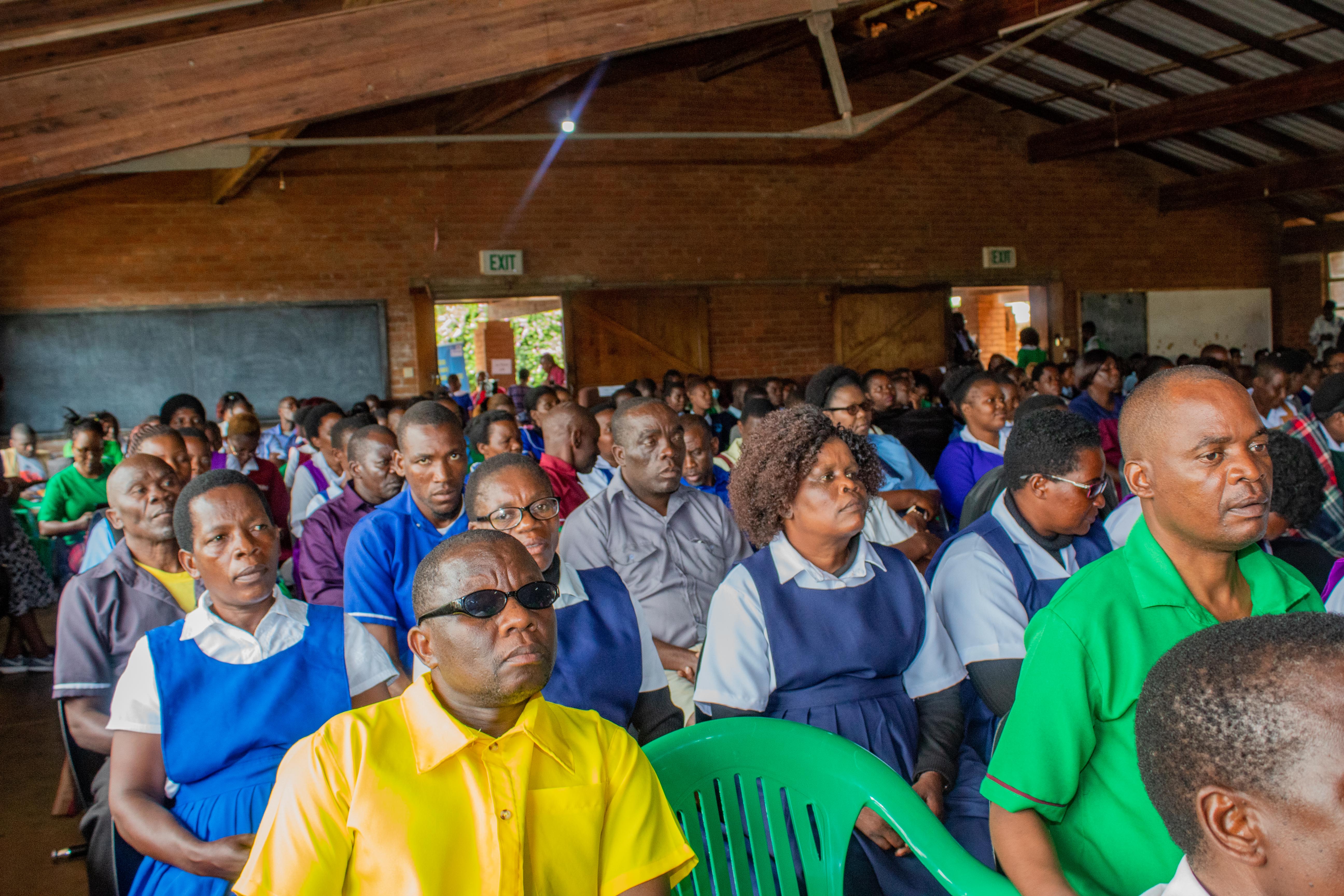Reflections on the International Day of Education: Embracing AI in Malawi’s Academic Landscape
On the 31st of January 2025, my colleague, Chimwemwe Chamangwana, from KAI Lab and I had the privilege of attending the International Day of Education event at Katoto Secondary School in Mzuzu. Accompanied by a representative from UNIPOD, we joined educators, students, and institutions from across Malawi to engage in discussions about the evolving role of Artificial Intelligence (AI) in education.
The event was graced by two leaders: Hon. Madalitso Kambauwa Wirima, Minister of Basic and Secondary Education, and Hon. Jessie Kabwila, Minister of Higher Education. Both ministers underscored the importance of integrating AI responsibly into Malawi’s educational system, emphasizing the need to preserve human agency in an increasingly automated world. Their speeches resonated with the event’s theme: “Artificial Intelligence and Education: Preserving Human Agency in a World of Automation.”
Showcasing AI Innovations from KAI Lab
As part of our participation, we presented two AI-driven projects that show how technology can enhance education and healthcare accessibility in Malawi.

MUBAS Stand
- Leveraging AI to Model Determinants of Health Care and Education in Malawi: This project focuses on using AI to map schools and healthcare facilities across Malawi, with the aim of identifying underserved areas and improving service delivery. By integrating AI-driven Geographic Information Systems (GIS) and modeling, this project analyzes accessibility challenges, providing data-driven recommendations for infrastructure development. Our work has already mapped over 340 schools and 146 health facilities in Blantyre, offering valuable insights into how AI can optimize resource allocation in education and healthcare.
- The role of AI in self-directed learning and professional development: Developed at KAI Lab in collaboration with the Public Health Institute of Malawi (PHIM), IntelSurv leverages AI to support community health workers in understanding medical terms, case definitions, and data entry requirements. The tool provides real-time AI-powered feedback, improving training, knowledge access, and ultimately the quality of healthcare service delivery.
Engaging with Key Stakeholders
The event began with a tour of various project stands, where the ministers and other dignitaries interacted with presenters. Our team was honored to be among the first to showcase our work, presenting second after the initial display. Representatives from the University of Malawi (UNIMA), Lilongwe University of Agriculture and Natural Resources (LUANAR), Mzuzu University (MZUNI), and various secondary schools were present, fostering a rich exchange of ideas.
Following the presentations, attendees convened in the school hall for a series of activities, including panel discussions and student-led performances, all centered around AI and its transformative impact on education.


School Hall
Key Messages from the Ministers
Dr. Jessie Kabwila encouraged institutions to leverage AI as a means of fostering innovation, ensuring that its application enhances rather than undermines human values. She highlighted the necessity of ethical AI implementation to help reduce socio-economic inequalities in education. Hon. Madalitso Kambauwa Wirima reiterated the government's dedication to embedding AI within national policies to ensure consistency across various sectors. She also announced plans for awareness programs aimed at educating teachers and students on responsible AI use and ethical digital practices.
The Future of AI in Malawian Education
The discussions at this event highlighted the need for AI literacy among students and educators. As Malawi moves towards AI integration in academic institutions, it is crucial to ensure that technology serves as a tool for empowerment rather than replacement. By promoting responsible AI use, we can preserve human agency while leveraging automation to enhance learning and service delivery.
Our participation in this event reaffirmed KAI Lab’s commitment to driving AI innovation for societal impact. We look forward to further collaborations in education, healthcare and other sectors in Malawi.
 KAI LAB
KAI LAB